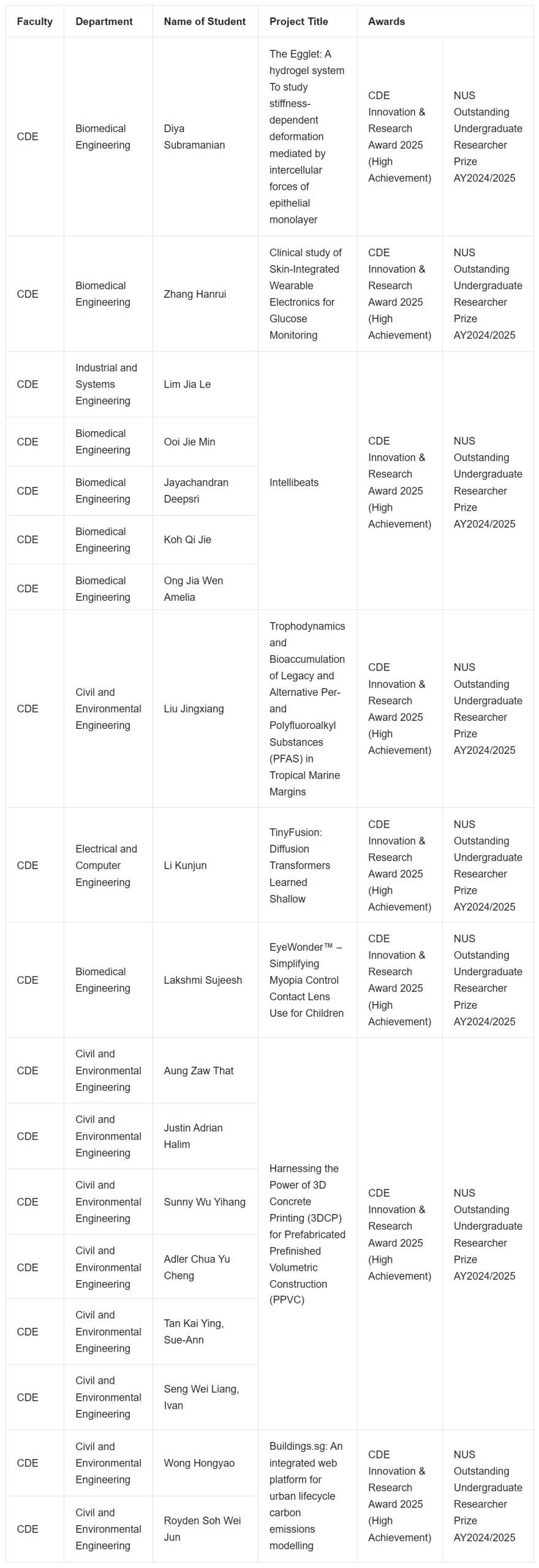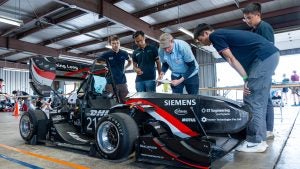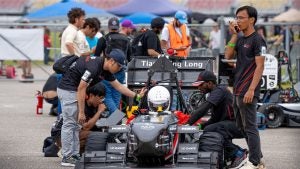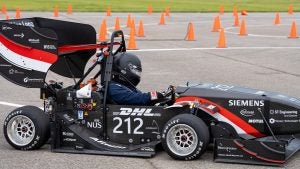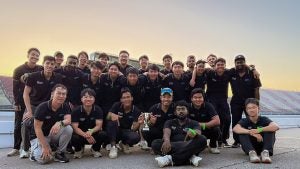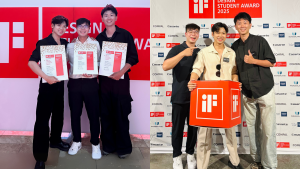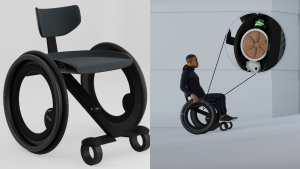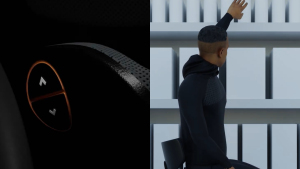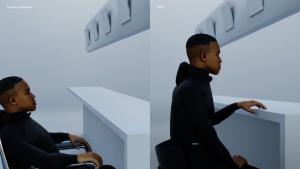STUDENT ACHIEVEMENTS & STUDENT LIFE
Winners of AY2024/2025 NUS Outstanding Undergraduate Researcher Prize (OURP) and CDE Innovation & Research Award 2025 (IRA)
These awards recognise outstanding student research and innovation across CDE. Congratulations to all the award recipients!
See the full list of winners and their projects below.
| Faculty | Department | Name of Student | Project Title | Awards | |
| CDE | Biomedical Engineering | Diya Subramanian | The Egglet: A hydrogel system to study stiffness-dependent deformation mediated by intercellular forces of epithelial monolayer | CDE Innovation & Research Award 2025 (High Achievement) | NUS Outstanding Undergraduate Researcher Prize AY2024/2025 |
| CDE | Biomedical Engineering | Zhang Hanrui | Clinical Study of Skin-Integrated Wearable Electronics for Glucose Monitoring | CDE Innovation & Research Award 2025 (High Achievement) | NUS Outstanding Undergraduate Researcher Prize AY2024/2025 |
| CDE | Industrial Systems Engineering and Management | Lim Jia Le | Intellibeats | CDE Innovation & Research Award 2025 (High Achievement) | NUS Outstanding Undergraduate Researcher Prize AY2024/2025 |
| CDE | Biomedical Engineering | Ooi Jie Min | |||
| CDE | Biomedical Engineering | Jayachandran Deepsri | |||
| CDE | Biomedical Engineering | Koh Qi Jie | |||
| CDE | Biomedical Engineering | Ong Jia Wen Amelia | |||
| CDE | Civil and Environmental Engineering | Liu Jingxiang | Trophodynamics and Bioaccumulation of Legacy and Alternative Per- and Polyfluoroalkyl Substances (PFAS) in Tropical Marine Margins | CDE Innovation & Research Award 2025 (High Achievement) | NUS Outstanding Undergraduate Researcher Prize AY2024/2025 |
| CDE | Electrical and Computer Engineering | Li Kunjun | TinyFusion: Diffusion Transformers Learned Shallow | CDE Innovation & Research Award 2025 (High Achievement) | NUS Outstanding Undergraduate Researcher Prize AY2024/2025 |
| CDE | Biomedical Engineering | Lakshmi Sujeesh | EyeWonder™ – Simplifying Myopia Control Contact Lens Use for Children | CDE Innovation & Research Award 2025 (High Achievement) | NUS Outstanding Undergraduate Researcher Prize AY2024/2025 |
| CDE | Civil and Environmental Engineering | Aung Zaw That | Harnessing the Power of 3D Concrete Printing (3DCP) for Prefabricated Prefinished Volumetric Construction (PPVC) | CDE Innovation & Research Award 2025 (High Achievement) | NUS Outstanding Undergraduate Researcher Prize AY2024/2025 |
| CDE | Civil and Environmental Engineering | Justin Adrian Halim | |||
| CDE | Civil and Environmental Engineering | Sunny Wu Yihang | |||
| CDE | Civil and Environmental Engineering | Adler Chua Yu Cheng | |||
| CDE | Civil and Environmental Engineering | Tan Kai Ying, Sue-Ann | |||
| CDE | Civil and Environmental Engineering | Seng Wei Liang, Ivan | |||
| CDE | Civil and Environmental Engineering | Wong Hongyao | Buildings.SG: An Integrated Web Platform for Urban Lifecycle Carbon Emissions Modelling | CDE Innovation & Research Award 2025 (High Achievement) | NUS Outstanding Undergraduate Researcher Prize AY2024/2025 |
| CDE | Civil and Environmental Engineering | Royden Soh Wei Jun | |||
| CDE | Materials Science and Engineering | Ouyang Yihang | Strain Control of Third Harmonic Generation in Nb2SiTe4 Driven by Tuneable Anisotropic Characteristics | CDE Innovation & Research Award 2025 (High Achievement) | |
| CDE | Mechanical Engineering | Jeric Lew Jieyi | DARE: Diffusion Policy for Autonomous Robot Exploration | CDE Innovation & Research Award 2025 (High Achievement) | |
| CDE | Civil and Environmental Engineering | Royden Soh Wei Jun | Integrating Probabilistic Embodied Carbon Emissions Estimation into Urban Building Energy Modelling – An Urban Planning Case Study in Singapore | CDE Innovation & Research Award 2025 (Merit) | |
| CDE | Electrical and Computer Engineering | Tan Hsien Rong | Investigating Dataflow, Memory Requirements and Possible Optimisations for Implementing Transformers on an In-Memory Computing System | CDE Innovation & Research Award 2025 (Merit) | |
| CDE | Mechanical Engineering | Adesara Kunjan Harshit | Species Assessment Mapper (SAM) | CDE Innovation & Research Award 2025 (Merit) | |
| SOC | Computer Science | Chu Wei Rong | |||
| CDE | Engineering Science Programme | Devinaa Kumeresh | |||
| CDE | Mechanical Engineering | Jason Jonathan Tejaputra | |||
| CDE | Electrical and Computer Engineering | Nicholas Tan Yun Yu | |||
| CDE | Engineering Science Programme | Sim Yu, Jeanette | BoxBunny: Boxing Training Robot | CDE Innovation & Research Award 2025 (Merit) | |
| CDE | Engineering Science Programme | Muhammad Zakir Haziq Bin Mohd Padzal | |||
| CDE | Mechanical Engineering | Ramie Lim Rui Min | |||
| CDE | Mechanical Engineering | Mageshkumar Kirubasankar | |||
| CDE | Biomedical Engineering | Tan Yi Hong Julian | SafeCut: A Safe and Effective Way to Completely Excise Gastrointestinal Lesions Endoscopically | CDE Innovation & Research Award 2025 (Merit) | |
| CDE | Biomedical Engineering | Divyalakshmi Balasubramaniam | eyePREDICT | CDE Innovation & Research Award 2025 (Merit) | |
| CDE | Mechanical Engineering | Bryan Salim | Robot-Assisted Laparoscopic Surgery Using Predictive Artificial Potential Field with RCM Constrained Controller | CDE Innovation & Research Award 2025 (Merit) | |
| CDE | Civil and Environmental Engineering | Psalm Micaela Salde | Hybrid Drought Forecasting Model Using ConvLSTM and Random Forest | CDE Innovation & Research Award 2025 (Merit) | |
| CDE | Electrical and Computer Engineering | Sparsh | Thermal Floater | CDE Innovation & Research Award 2025 (Merit) | |
| CDE | Civil and Environmental Engineering | Chia Min Shen | Sustainable Superabsorbent: Cellulose-based Hydrogels Synthesis using Natural Green Crosslinking Agent | CDE Innovation & Research Award 2025 (Merit) | |
Year 2 Computer Engineering student Sean Ng's internship journey in France with DSO National Laboratories
“This experience taught me the nature of research-driven work, where answers aren’t always straightforward and must be discovered through critical thinking and independent exploration,” said Sean Ng, a Year 2 Computer Engineering student.
Sean recently completed a six-month internship under the Advanced Technology Attachment Programme (ATAP) with DSO National Laboratories, as part of the inaugural SONDRA x DSO Internship Programme. This opportunity allowed him to collaborate with French researchers at SONDRA Lab, a joint research lab between NUS and ONERA - The French Aerospace Lab. This partnership focuses on advancing fundamental research in electromagnetism and radar technology, combining Singaporean and French expertise.
During his internship, Sean analysed how small disturbances, known as phase noise, can affect the performance of advanced radar systems. To do this, he used various mathematical methods to process the radar data and then tested his findings using specialised radio equipment. This work helps improve how radar systems detect and interpret objects, with applications in areas such as navigation and surveillance.
The experience expanded his research horizons, exposing him to new areas such as quantum technologies and machine learning in radar. He noted that French institutions demonstrate significant depth in radar-related domains, from antenna design to advanced machine learning methods.
Sean credits the strong technical foundation he built at CDE, especially the course EE3731C Signal Analysis, for preparing him well for the internship. “The course introduced me to key signal processing techniques like the discrete Fourier transform, Fourier transform pairs, and windowing methods, which I applied extensively during my internship. This prior knowledge made it easier to adapt and pick up new skills on the job.”
Year 3 Chemical Engineering and Innovation & Design Programme students win the MIT Water, Food, & Agriculture Innovation Prize 2025
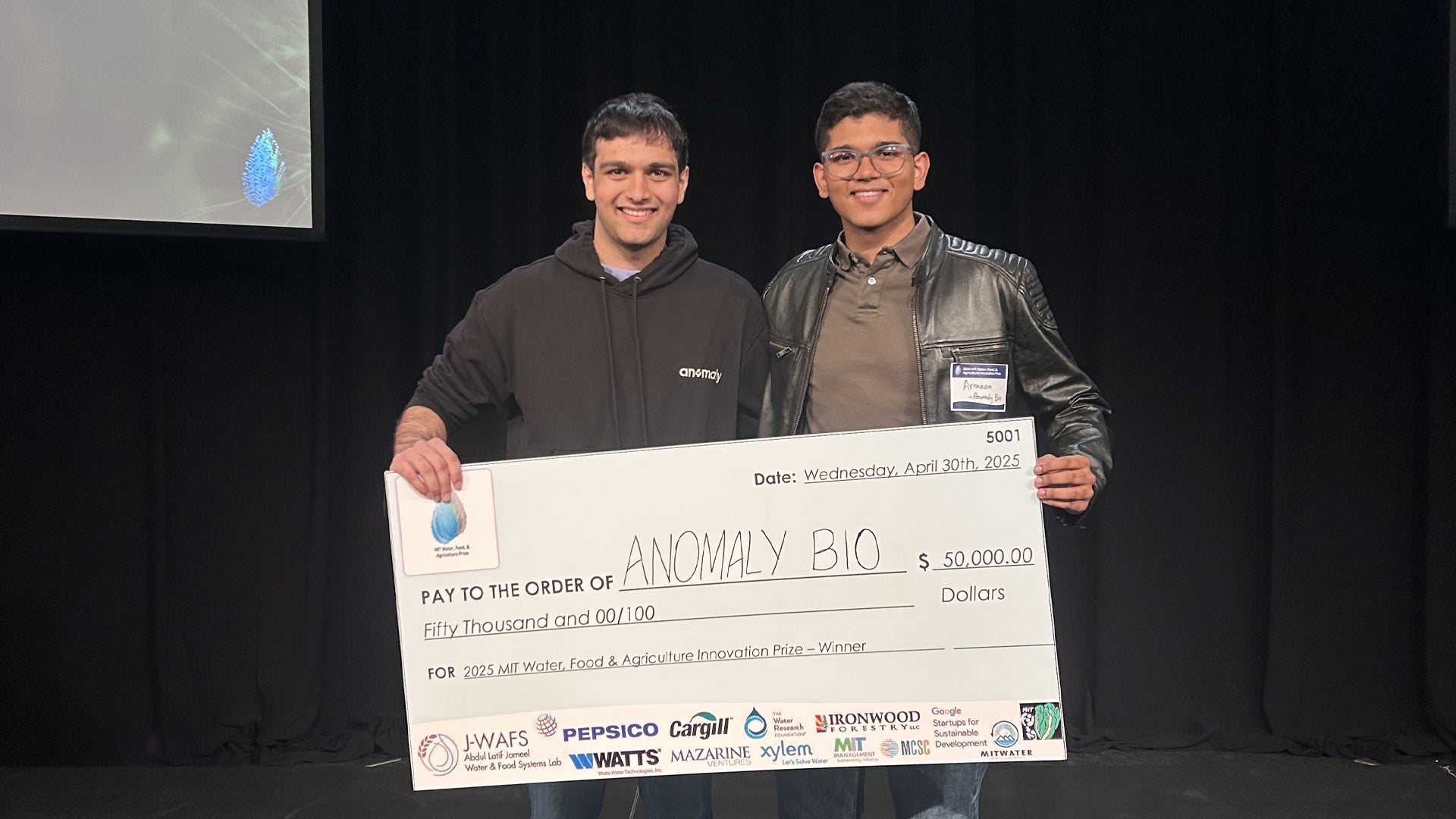
Congratulations to Year 3 students Armaan Dhanda (Chemical Engineering, Second Major in Innovation and Design) and Samyak Baid (Economics, Second Major in Innovation and Design) for clinching the MIT Water, Food, & Agriculture Innovation Prize 2025.
The competition brings together early-stage, student-led startups advancing the future of sustainable water, food and agricultural solutions. Winners receive US$55,000 in non-dilutive funding to support the growth of their ventures.
Armaan and Samyak presented their start-up, Anomaly Bio, which uses fermentation to build the future of ingredient supply chains. They focus on making supply-constrained ingredients accessible through biotechnology. These are ingredients that are often expensive, animal-derived, or vulnerable to climate and geopolitical shocks. The first ingredient they aim to develop is a smart protein designed for applications in food, with future potential in nutrition and beauty.
The project was initially developed as part of the Ideas to Proof-of-Concept course under the Innovation and Design Programme (iDP) and will continue its development through the Ideas to Start-up course.
Commenting on their win, Armaan and Samyak said, “This win is a powerful validation of our vision. Anomaly Bio is solving critical supply bottlenecks through biology, and we’re excited to scale up our first ingredient using this funding. We’re especially grateful to the Innovation and Design Programme, and to Dr Elliot Law and Dr Jovan Tan, whose guidance has been instrumental in shaping our thinking.”
As their Ideas to Proof-of-Concept course project supervisor, Dr Jovan Tan said, “Armaan and Samyak truly exemplify the spirit of iDP, as they demonstrate remarkable passion, resourcefulness and ingenuity in tackling real-world challenges. We are pleased to hear of their success and take pride in their achievements. Armaan and Samyak will continue to develop Anomaly Bio as part of our CDE4301A Ideas to Start-up course, and we look forward to seeing their continued success through iDP!”
Team FSAE NUS clinches seventh place at the Formula SAE Electric Competition
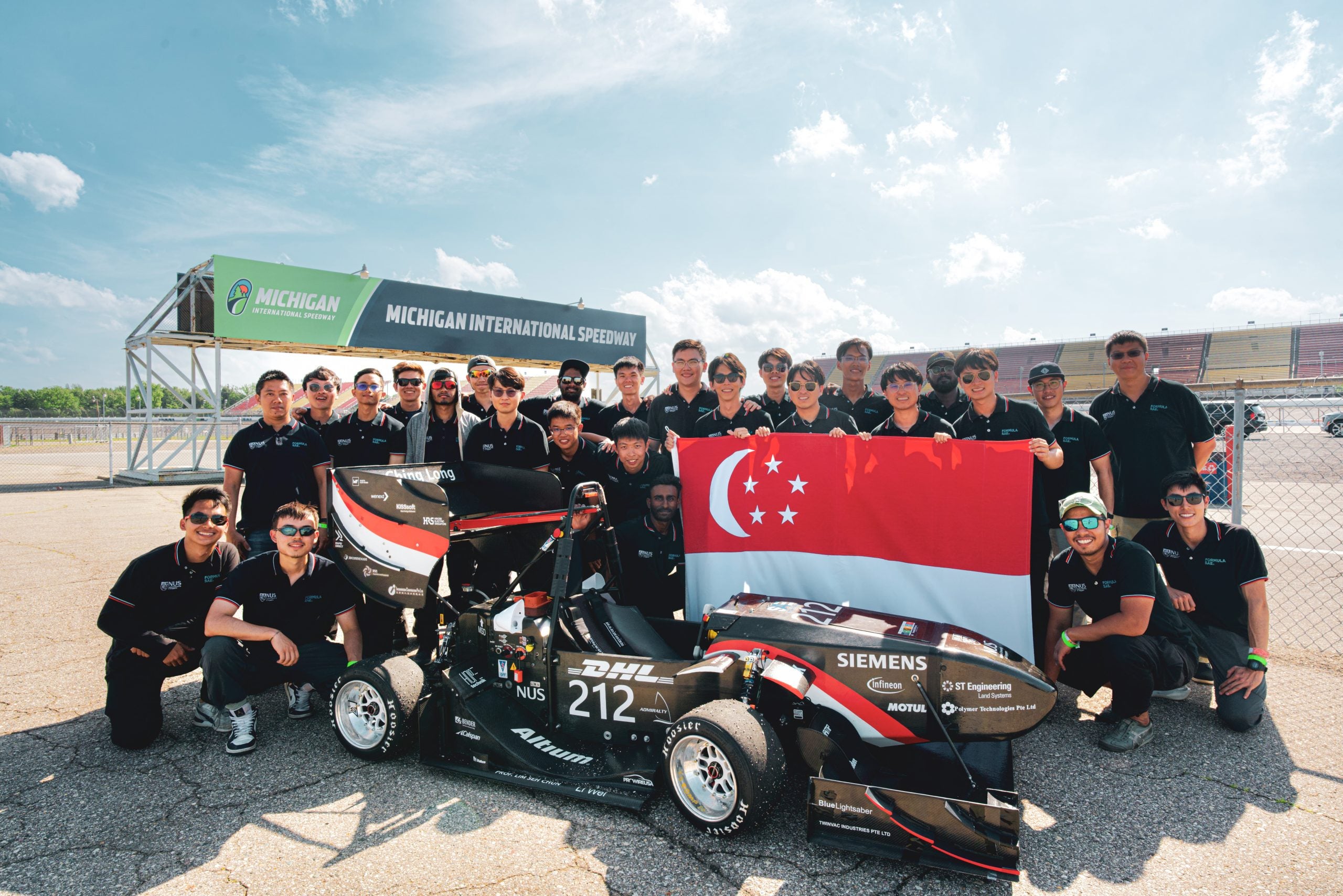
Congratulations to Team FSAE NUS, who recently clinched seventh place at this year’s Formula SAE Electric Competition in Michigan! This is their highest ever placing in the competition and is a testament to their continued growth over the years. Since pivoting to the electric vehicle category in 2021, the team has gone from strength to strength, and the years of hard work and innovation have led them to this achievement.
Founder and Team Advisor for Team FSAE NUS, Emeritus Professor Seah Kar Heng, says, “This is a tremendous achievement. The last time we ever attained such a peak ranking was in 2015 when we were using an internal combustion engine race car. Since then, we have moved over to building an electric race car, which required everyone to learn a new technology altogether. It is not just a simple matter of replacing an engine with a motor. The entire handling of the car changes since the way the two power sources work are entirely different. The drivers had to learn a new style of driving, and so did those analysing the diagnostic parameters. Although most of the hard work was from the students themselves, the specialist staff guiding them should be mentioned too, including Assoc Prof Ashwin Khambadkone, Lim Hong Wee, Kenneth Neo, and our technical staff. We are also grateful to EDIC, CDE and NUS, plus the external sponsors for their unfailing support in many ways.”
Also commenting on the team’s success, Prof Lee Poh Seng (Head of Mechanical Engineering) says, “Since the Department of Mechanical Engineering first supported the student team which built Singapore's inaugural Formula SAE car in 2001, the team’s bold pivot to an all-electric racer has been a steep but purposeful climb — propelled by generations of alumni who still return to mentor each cohort and Emeritus Professor Seah Kar Heng who has been there from the start. Placing our R25E in the global Top 7 shows how far passion and sustainability can take us. Onward to an even greener future!"
LeoNUS CanSat Team reflects on their enriching and memorable experience at the 20th Annual CanSat Competition
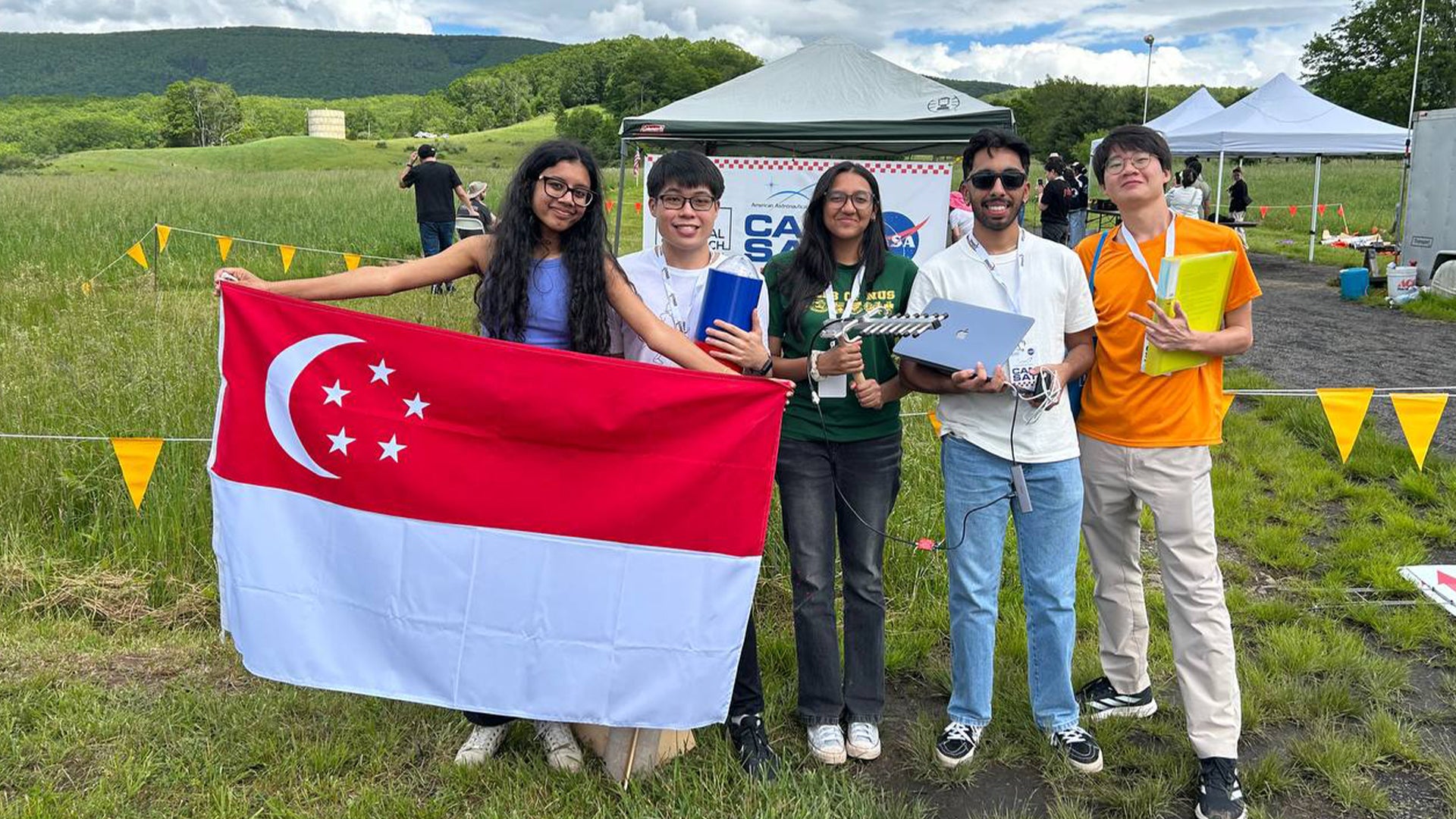
We are proud to share that the LeoNUS Team has successfully completed their journey at the 20th Annual CanSat Competition in Monterey, Virginia, USA, where they represented NUS among more than 60 international university teams.
Organised by the American Astronautical Society, the competition simulates a complete aerospace mission, challenging students to design, build, and launch a space-type system consisting of a container and payload, with a strong focus on real-world systems engineering.
The team comprises six students across Year 2 and Year 4 from disciplines including Electrical and Computer Engineering, Mechanical Engineering, and Computer Science, who are pursuing a second major or minor in the Innovation & Design Programme (iDP). The team was jointly formed through the Department of Electrical and Computer Engineering’s Capstone Design course and the Engineering and Design Innovation Centre's (EDIC) Undergraduate Research Experience (UREX) and Undergraduate Research Opportunities Programme (UROP) programmes.
This year, the LeoNUS team placed 24th overall, after overcoming several technical setbacks just before the launch. A day before the Pre-Flight test, a few microcontrollers failed, forcing the team to make critical last-minute adjustments. “Gavin and Jun Qiao worked tirelessly over two days to troubleshoot,” the team shared. “We think that forgoing the servo motors and cameras was a smart call, as it still allowed us to launch and gather some vital data.” Despite the challenges, the team managed to launch successfully, collect sensor readings up to apogee, and present their findings.
The experience was not only technically enriching but also deeply rewarding. Annanya Vishwanath, a Year 2 Electrical Engineering undergraduate with a minor in iDP and Team Lead of LeoNUS, said, “The most unforgettable moment was undoubtedly the launch itself, seeing our CanSat ascend after a year of hard work felt truly surreal.” They also found inspiration in watching other teams’ unique designs perform in different ways, and most importantly, in the friendships they formed along the way.
“Every team, from every country, was incredibly welcoming and supportive,” they reflected. “These were truly lifelong connections, and it was amazing to interact with people who shared our interests and passion.”
With the competition wrapped up, the team returned with valuable insights and stronger collaboration. As the Year 4 students graduate, Tejashri, Namit, and Annanya are looking ahead, eager to continue the journey and build on this year’s experience with future teammates.
Congrats again to the LeoNUS CanSat Team for their hard work and teamwork! We can’t wait to see what you achieve next.
Special thanks to the supervisors who guided them throughout this journey:
Mr Eugene Ee and Dr Goh Shu Ting
Team NUS Calibur Robotics delivers outstanding results at RMUL 2025
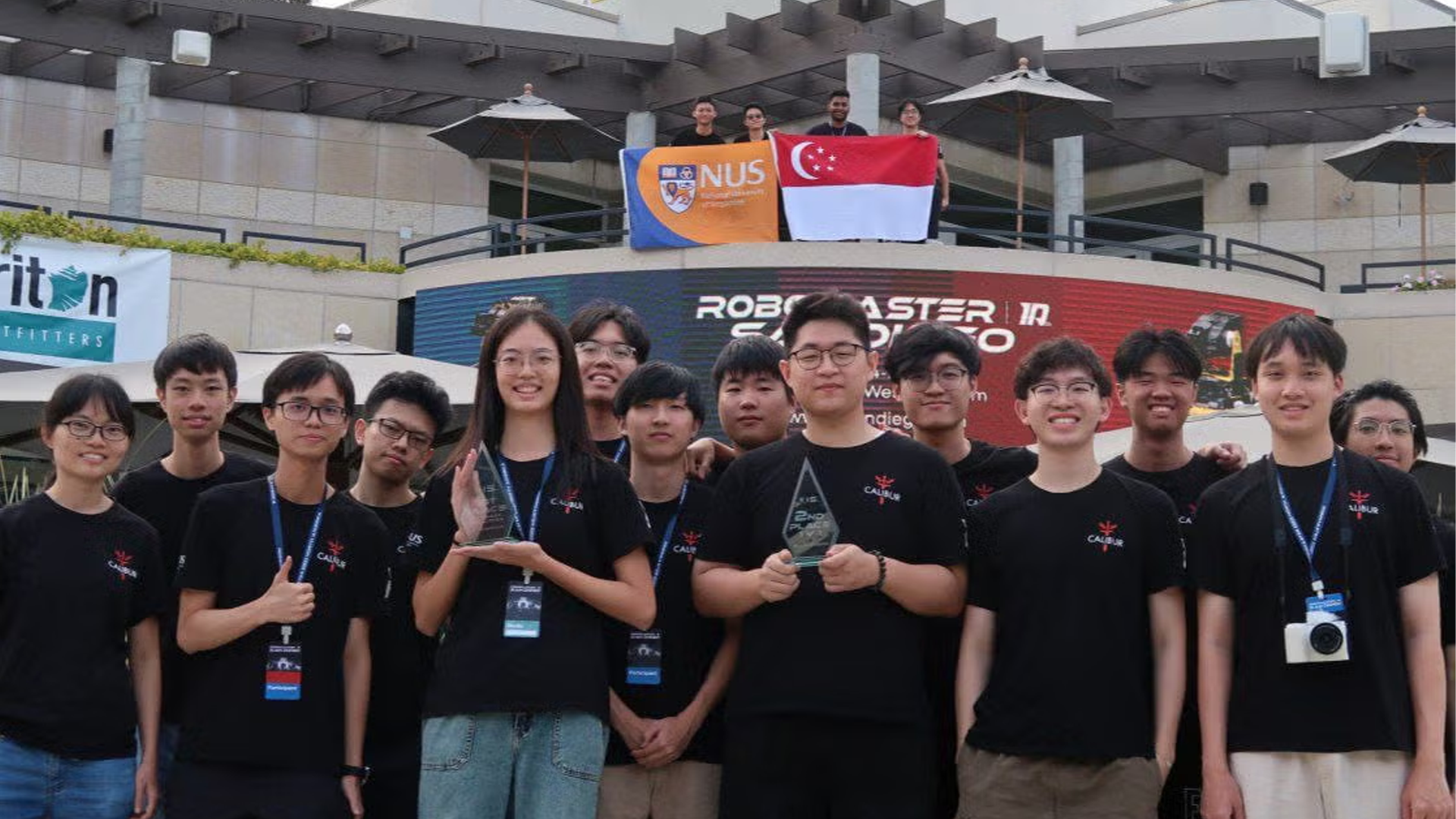
Competing in three categories for the first time ever at the RoboMaster University League (RMUL) in San Diego, a regional competition promoting robotics innovation and collaboration, Team Calibur achieved:
1st Place: Engineer Challenge (their debut attempt!)
2nd Place: 1v1 Infantry Match
Top 8: 3v3 Match
The competition featured 28 teams from countries including the US, China, South Korea, and Singapore. RMUL tests a wide range of technical and strategic skills through three main events. The Engineer Challenge has robots equipped with mechanical arms completing complex tasks like mineral exchange, testing speed and accuracy. The 1v1 Infantry Match focuses on precision combat. In the 3v3 Match, teams deploy multiple robot types to outmanoeuvre their opponents and dominate the battlefield.
This year marked the debut of Team Calibur’s new lineup of next-gen robots, developed by a rapidly growing team of over 50 students from Mechanical, Electrical, and Computer Engineering, along with Biomedical Engineering, Physics, and other disciplines. To enhance their capabilities and expand their robot archetypes, the team has grown over the past year and aims to open their roster further to the wider NUS community.
On the 3v3 Match, Mr Chew Wanlong Nicholas, Staff Lead Advisor from the Engineering Design and Innovation Centre (EDIC), noted that the team faced challenges with an older robot model and tough brackets but added, “I’m proud of the team's achievements over the past year to rush out a mostly new robot lineup for the competition.”
Dr Yen Shih-Cheng, Director of EDIC, commended the students for their strong performance despite last-minute competition changes. “This experience will give the team the confidence to go even further in future competitions,” he said.
Well done to Team Calibur for flying the NUS flag high on the international stage!
Learn more about NUS Calibur Robotics here
Industrial Design students receive the iF DESIGN STUDENT AWARD 2025 for their empowering design project, REVO
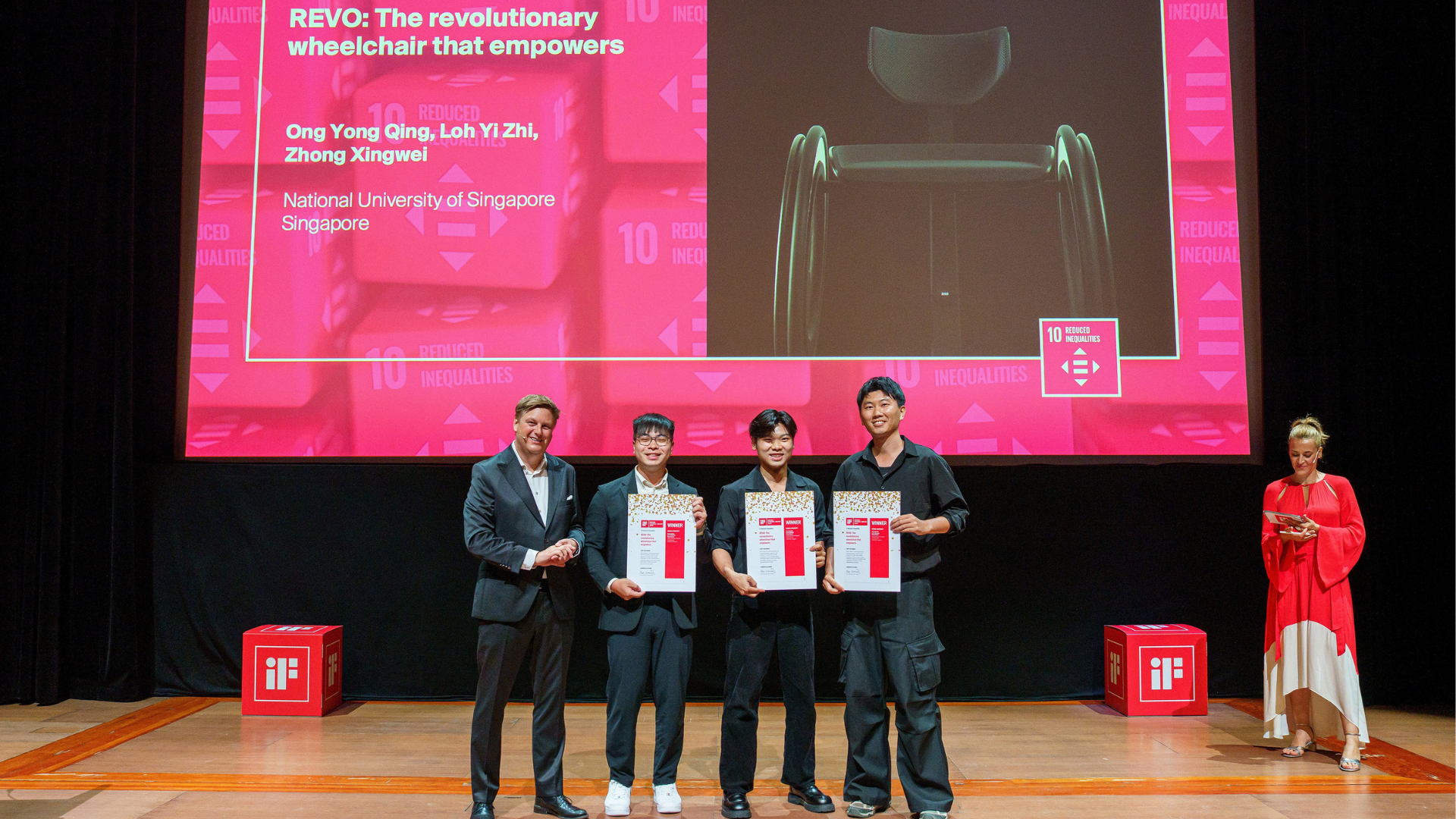
Design that empowers!
Our undergraduate students in Industrial Design, Loh Yi Zhi, Ong Yong Qing, and Zhong Xingwei, have received the iF DESIGN STUDENT AWARD 2025 for their project, REVO. This innovative wheelchair concept rethinks mobility through user-centred design and assistive technology.
Supervised by Associate Professor Song Kee Hong from the Division of Industrial Design, the team conceptualised REVO to empower users with greater independence, dignity and confidence.
Selected from over 7,000 global entries, REVO was recognised as one of the top 100 winning projects at the iF DESIGN STUDENT AWARD 2025, held at the Guggenheim Museum in Bilbao, Spain, on 20 June 2025
REVO stands out by integrating advanced assist technology inspired by e-bikes to reduce fatigue and allow smoother movement. Powered assistance makes it easier to ascend slopes, while a pneumatic lift system helps users reach items on higher shelves and adjust their seat to eye level for more natural social interactions. The project addresses UN Sustainable Development Goal #10: Reduced Inequalities, focusing on dignity, autonomy, and equal participation for people with mobility challenges.
“We noticed a gap in mobility solutions for younger wheelchair users, especially when it came to fatigue and social interaction,” said Yi Zhi. “Our aim was to design a concept that destigmatises wheelchair use while restoring a sense of control and dignity to users.”
To learn more about REVO and the team’s journey, read the full article here. Watch REVO in action.



